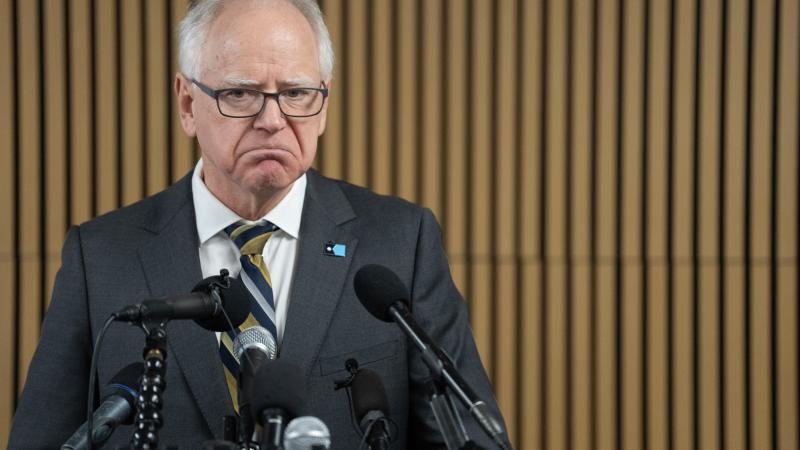Experts say LA homeless-in-hotels measure could drive industry out of business
If passed, it would require hotels to tell the city how many vacant rooms they have by 2:00 PM each day so the city can send homeless individuals to the hotels for a “fair market rate.”
(The Center Square) - According to a new national poll, 72% of respondents say they would not stay in a Los Angeles hotel if a measure to require hotels to accept vouchers to host homeless individuals in any unsold rooms passes in the March 2024 primary election. Experts say that if the measure passes, increases in liability losses and insurance costs from hosting homeless individuals next to paying guests could drive LA’s hotels out of business.
The ballot measure was sponsored by Unite here Local 11, a regional hospitality union currently on strike that represents over 32,000 members across Southern California and Arizona. If passed, it would require hotels to tell the city how many vacant rooms they have by 2:00 PM each day so the city can send homeless individuals to the hotels for a “fair market rate.”
“If Unite Here succeeds in turning all LA hotels into homeless shelters, eventually there will be no hotels – and no hotel workers – left in the city. Safety concerns will prevent workers from taking hotel jobs and drive tourists to other locations," said American Hotel and Lodging Association president and CEO Chip Rogers, whose organization engaged Morning Consult to conduct the 2,203 respondent national poll on the measure.
The poll also found that 70% of Americans would not attend a business conference in Los Angeles if the new measure is passed, while another 71% say they are concerned about the safety risks to hotels and staff and 70% about the risk of damage to hotel property if homeless people are housed next to paying guests.
Academic Director of the Cornell Center for Innovative Hospitality Labor and Employment Relations Dave Scherwyn, a hospitality industry labor and management expert who hosts an annual industry conference, spoke to The Center Square about significant liability and danger hotels and guests could be exposed to by the proposed policy, and his own reticence about ever hosting a conference in Los Angeles if the measure passes.
“Liability insurance will go up,” Scherwyn said. “Hotels are liable for guest to guest interactions and guest to guest attacks.”
In the interview, Scherwyn noted that individuals injured at a hotel by homeless individuals while out on a work trip would likely not only collect worker’s compensation from their employer, but could also subject the hotel to “tort liability with unlimited punitive damages,” and that in some cases, the business the employee works to could still be liable for what happens to them on their travels to hotels subject to this measure.
“It’s going to be a ton of litigation and a ton of increased costs for businesses,” Scherwyn said.
Scherwyn also says that a likely increase in worker’s compensation claims from hotel employees would drive up workers’ compensation plan costs, and cases of litigation where employees seek to claim damages from negligence or other civil torts, which would then drive up liability insurance for hotels. Because hotels are subject to a “higher duty of care” around their historical role as providing safe haven for travelers, they are more responsible for providing a higher standard of safety than standard commercial businesses are.
If, for example, a hotel does not hire “enough” security, it could be found negligent. Scherwyn argues that a high-end hotel with more affluent clientele would have to substantially increase security to meet the increased risks from potential disturbances and even attacks.
Recounting a case 20 years ago, he was asked to advise on in which a homeless man eating hallway leftovers attacked a woman who opened her hotel door to get her newspaper, Sherwyn explained that housing homeless individuals could come with real risks to guests.
“A woman came out in her robes and he attacked and raped her. She scratched him and got DNA evidence. She had in-vitro fertilization after years of being infertile, and he had HIV, so she had to get an abortion,” Sherwyn said.
Because of these risks, Sherwyn, who runs an annual national human resources and hospitality conference, says he wouldn’t consider hosting his event in Los Angeles if the measure passes.
“Am I going to put my conference somewhere where the owner says, wait a second, LA? … [Speaking as a business owner] If something happens to you that’s my workers’ comp, or maybe that’s outside my workers’ comp. I don’t want to worry about that liability … I don’t want something to happen to you,” Scherwyn said.
Earlier polling by AHLA found that 59% of Los Angeles voters said they would be less likely to visit a city and stay in a hotel there if they knew homeless individuals would be lodged next to paying guests. So why is this measure going forward in the first place?
Unite Here 11 easily gathered the 126,000 signatures required to get the measure on the ballot, which also qualified the Los Angeles City Council to be able to adopt the measure immediately as law. Instead of doing so, they unanimously decided to punt the decision to voters.
“Oftentimes, more than not, politicians don’t want to deal with the collateral damage that comes with making a controversial decision, so they send it directly to the public,” California political analyst Charles Chamberlyane said to The Center Square.
One of the more powerful unions in Southern California, Unite Here 11 played an instrumental role in electing Los Angeles City Councilmember Hugo Soto-Martinez, who was a lead organizer at the union paid $68,618 by the organization in 2021.














